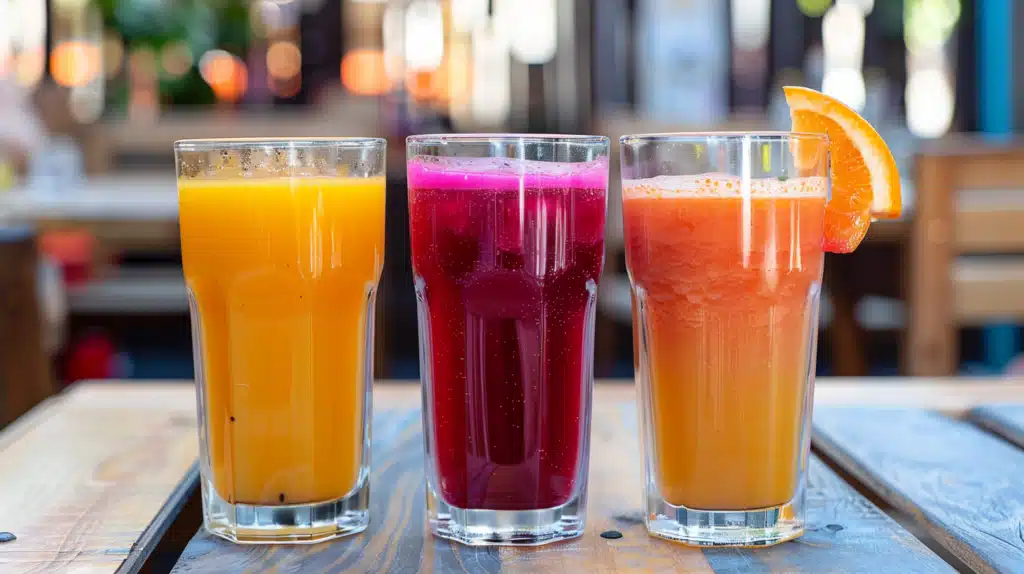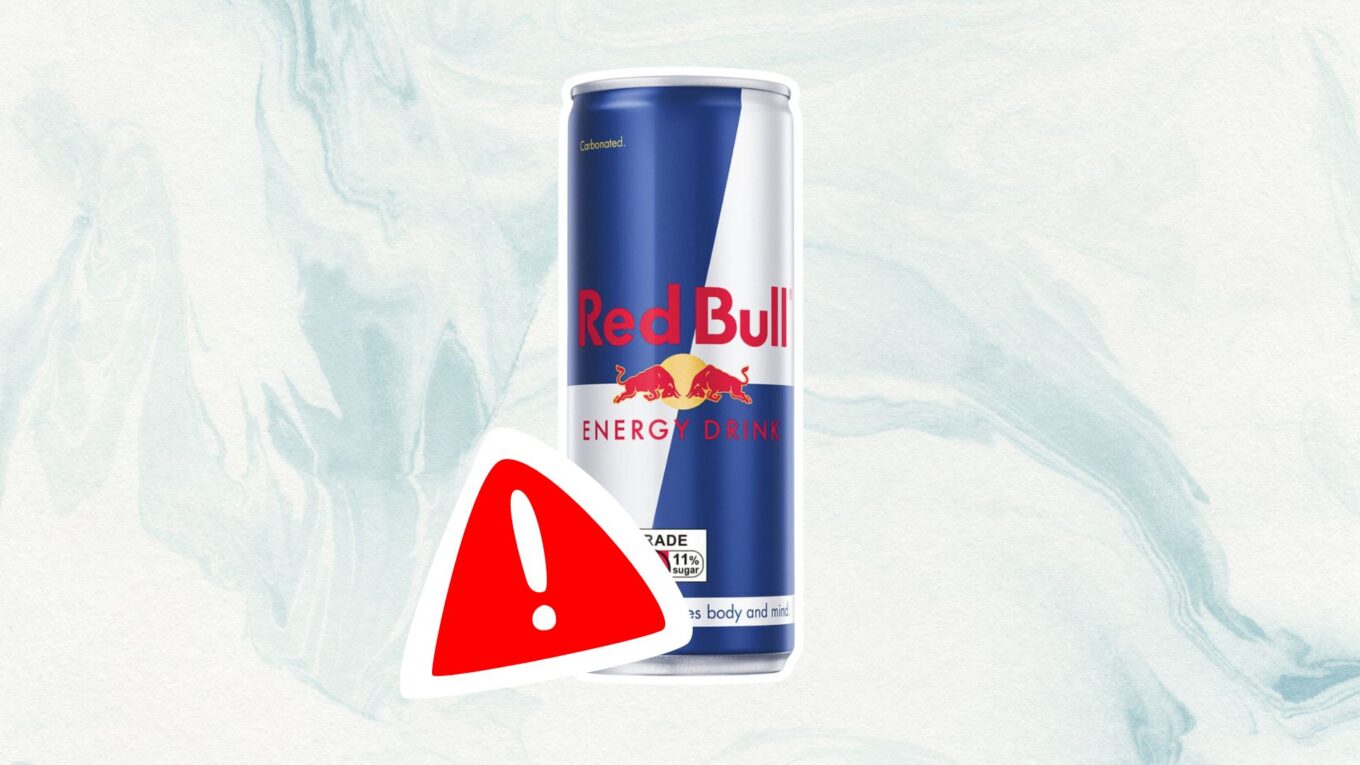Are you feeling tired and relying on Red Bull for a quick energy boost?
While it may give you wings temporarily, the long-term effects of consuming Red Bull daily can be alarming.
From potential heart problems to increased risk of type 2 diabetes, the short-term benefits may not be worth the long-term consequences. But don’t worry, we’ve got you covered!
In this article, we’ll explore the science behind Red Bull’s ingredients and healthier alternatives that can energize you without compromising your well-being.
Get ready to make informed decisions about your daily beverage choices and discover the power of natural energy sources. Let’s take control of our health together!
Composition of Red Bull
| Category | Ingredient | Details |
|---|---|---|
| Caffeine | Effects | It acts as a central nervous system stimulant, increases alertness, reduces fatigue, and boosts stamina. |
| Mechanism | Blocks adenosine receptors in the brain. | |
| Research | It enhances physical and mental performance and improves reaction times and cognitive function. | |
| Sugar | Role | Provides quick energy by increasing blood glucose levels. |
| Caloric Content | 27 grams of sugar in a regular 8.4-ounce can. | |
| Health Implications | Potential for blood sugar spikes and insulin resistance with regular high consumption. | |
| Taurine and Other Amino Acids | Benefits | It claims to improve metabolism and enhance athletic performance. |
| Functions | Regulates neurotransmitters and supports muscle function. | |
| Scientific Evaluation | There are mixed results; further research is needed. | |
| B Vitamins | Metabolic Enhancement | It contributes to energy metabolism and supports cellular processes. |
| Types and Roles | It includes B3 (niacin), B6, and B12, which are important for energy production and cognitive function. | |
| Nutritional Perspective | Importance noted, but reliance on beverages for supplementation is cautioned. |
Long-Term Effects of Red Bull
1. Immediate Impact on Heart Rate and Blood Pressure
- Consuming Red Bull can lead to an immediate increase in heart rate and blood pressure.
- Studies have shown that drinking just one 8.4-ounce can of Red Bull can significantly increase blood pressure and heart rate within 90 minutes.
- The caffeine in Red Bull stimulates the nervous system, causing these cardiovascular changes.
2. Long-term Risks and Heart Rhythm Abnormalities
- Chronic consumption of Red Bull may lead to abnormalities in heart rhythm, such as arrhythmia.
- Research has linked regular energy drink consumption to increased risk of heart-related issues, including irregular heartbeat and even heart attack in severe cases.
- The combination of high caffeine, sugar, and other stimulants in Red Bull can put stress on the cardiovascular system over time.
3. Obesity and Type 2 Diabetes Connection
- A regular 8.4-ounce can of Red Bull contains 27 grams of sugar, which can contribute to obesity and type 2 diabetes if consumed frequently.
- Studies have shown a correlation between regular consumption of sugary energy drinks and increased incidence of metabolic diseases.
- The high sugar content in Red Bull can lead to blood sugar spikes and, over time, insulin resistance.
4. Caffeine-Induced Insulin Sensitivity
- Caffeine in Red Bull can affect insulin sensitivity, potentially leading to long-term metabolic issues.
- Regular intake of high-caffeine drinks like Red Bull may increase the risk of developing metabolic syndrome, a cluster of conditions that raise the risk of heart disease, stroke, and diabetes.
5. Dependence and Withdrawal Symptoms
- The caffeine and taurine in Red Bull can be addictive, leading to dependence with regular consumption.
- Sudden cessation of Red Bull intake can cause withdrawal symptoms such as headaches, irritability, and fatigue.
- These symptoms occur because the body becomes accustomed to the stimulating effects of the drink’s ingredients.
6. Sleep Disturbances
- The high caffeine content in Red Bull can disrupt sleep patterns and lead to insomnia, especially if consumed later in the day.
- Studies have linked energy drink consumption with poor sleep quality and reduced sleep duration.
- Chronic sleep disturbances can have broader impacts on mental health, including increased risk of anxiety and depression.
7. Chronic Use and Kidney Function
- Long-term, excessive consumption of Red Bull may negatively affect kidney health.
- Some studies have observed a decline in kidney function among habitual consumers of energy drinks.
- The high sugar and caffeine content in Red Bull can put extra stress on the kidneys over time.
8. Increased Risk-Taking Behaviors
- The stimulating effects of Red Bull can lead to increased risk-taking behaviors, particularly in young adults.
- Psychological and sociological studies have found a link between energy drink consumption and engaging in risky activities like speeding, substance abuse, and unprotected sex.
9. Alcohol Mixing and Consumption
- Mixing Red Bull with alcohol is a common practice, especially among young adults, but it can be dangerous.
- The stimulating effects of Red Bull can mask the perception of intoxication, leading people to drink more alcohol than they realize.
- This dangerous combination increases the risk of alcohol poisoning, accidents, and injuries.
Healthier Alternatives to Red Bull
Many consumers seek healthier alternatives to Red Bull and other energy drinks due to concerns about their potential negative health effects.
Some common issues with Red Bull include its high sugar content, which can lead to weight gain and increased risk of type 2 diabetes, and its high caffeine levels, which can cause jitters, anxiety, and sleep disturbances.
Several natural options are available for those looking to avoid these risks while still getting an energy boost.
1. Green Tea

- Rich in natural caffeine and antioxidants
- Boosts energy levels and mental alertness
- It may improve metabolism and aid in weight loss
2. Black Coffee

- It contains caffeine, which stimulates the central nervous system
- Increases energy levels and improves focus
- Low in calories when consumed without added sugar or cream
3. Herbal Teas

- Ginseng tea: Reduces fatigue and improves cognitive function
- Peppermint tea: Enhances alertness and reduces stress
- Yerba Mate: Contains caffeine and antioxidants, boosts energy
4. Fresh Fruit Juices

- Provide natural sugars for a quick energy boost
- High in vitamins, minerals, and antioxidants
- Options like pomegranate and beetroot juice can improve blood flow and oxygenation.
5. Coconut Water

- It contains electrolytes like potassium and magnesium
- Helps rehydrate the body and replenish lost nutrients
- It may enhance physical performance during exercise
Conclusion
Red Bull may provide a temporary energy boost, but regular consumption has potential long-term health risks that cannot be ignored.
From cardiovascular issues to metabolic concerns, the high caffeine and sugar content in Red Bull can take a toll on your body.
It’s crucial to be aware of these risks, especially for vulnerable populations like children, adolescents, pregnant women, and individuals with pre-existing health conditions.
However, healthier alternatives can provide a natural energy boost without the negative side effects.
Options like green tea, black coffee, herbal teas, fresh fruit juices, and coconut water offer a more balanced approach to increasing alertness and improving overall well-being.
By making informed choices and prioritizing your health, you can maintain optimal energy levels without compromising your long-term wellness.
Frequently Asked Questions
Is it OK if I drink Red Bull Every Day?
No, drinking Red Bull every day is not recommended. The high sugar and caffeine content can lead to health issues like increased heart rate, blood pressure, and risk of type 2 diabetes.
Is Red Bull Worse than Coffee?
Red Bull and coffee contain caffeine, but Red Bull has added sugars and other ingredients. In moderation, coffee may be a healthier choice than Red Bull.




